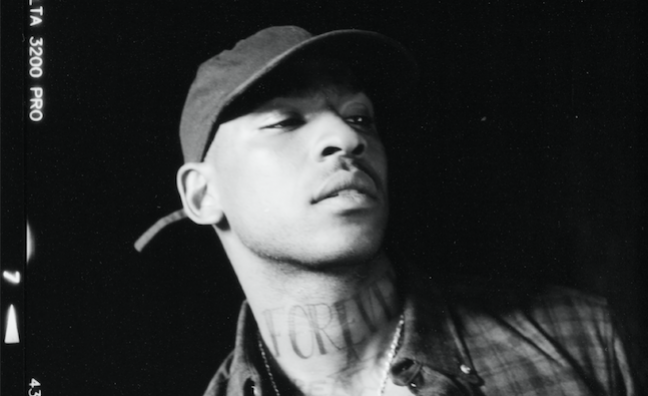Rebecca Prochnik has been involved in the UK grime scene since its very earliest days. Working as an agent at Elastic Artists and, since 2014, with Earth Agency, Prochnik has represented acts including Wiley and Crazy Titch, while Skepta, JME, Boy Better Know and AJ Tracey all feature on her current roster.
Interviewed in the new edition of Music Week as part of a feature analysing the live industry around grime, Prochnik discusses her journey with the genre. Reflecting on grime’s development and subsequent explosion into mainstream culture, Prochnik also lifts the lid on Boy Better Know’s O2 Takeover, which takes place on Sunday (August 27).
Read on to find out more, and to hear what Prochnik thinks the future holds, both for Boy Better Know and grime itself.
How does booking grime artists differ from booking artists of other genres?
Although a few have notorious and longstanding teams, the majority of grime artists traditionally have been unmanaged or had very loose management. Also artists often hadn't travelled too much, especially out of the UK. Initially, getting things to run smoothly was a challenge and still can be with younger artists who are used to rolling with a lot of people. This can create a conflict for promoters and the smooth running of shows sometimes. At times it adds to the mood and vibe, but it can be hit and miss and sometimes obscure the talent.
Who was the first grime act you took on and how has your roster developed since?
Wiley, who so happened to be my first grime love and I am honoured it was him. Then Crazy Titch. Then JME. Then Skepta. All are my personal and musical heroes in different ways. Of the newer guard, AJ Tracey.
Has grime’s mainstream breakthrough come as a surprise or were you always confident of its potential?
I think it's not surprising now given the fervour and spotlight for the past few years, there's no way that avoids industry input and commodification. However, casting back a few years when it was in the wilderness, it did definitely feel like it was all behind a rigid, immovable veil. So it is quite something to have four-year-old kids from the Home Counties going mental to grime anthems and to have their proud parents filming it. Around "hug a hoodie" time, the whole media eye focused on how dangerous, villainous elements of the UK's crooked underbelly were embodied in grime. I guess it's funny to see how middle England has since updated its sentiments.
What do you consider to have been key breakthrough moments in its mainstream acceptance?
Skepta is a key breakthrough moment. Much happened before in grime’s timeline, but it was him who embodied the shift. He opened the door. All the rest followed.
What has been BBK’s live trajectory in terms of the venues they have played?
BBK aren't a touring act. They don't put out albums or have cycles, tour... We've just selected a few key placements that reflect correctly for them. Red Bull Culture Clash, the year they lost [2014], not the year they won funnily enough... That was a huge turning point in their popularity and demand for them to do this, that and the other, but they don't do shows like that. They just do things that make sense with their own amorphous personality. Reading & Leeds have always been great slots, giving that scale to non-Londoners; Wireless also was a major feel good home-style hoedown. The Takeover at The 02, again, is not about trajectory. Though The 02 is perceived as a huge step, statement venue for artists, the reasons for taking this space was not for those purposes. It was because it provided the scope as a space do a full multi-discipline, full-day event.
How did the Takeover come together?
The idea has been there for years. To do something 3D that reflected all that they are, or at least more of what BBK is, rather than just a straightforward concert. It was just a matter of finding the right space.
Why did you choose The O2?
It had an in-built structure that allowed us to do what we wanted perfectly. There’s space in the quad for the football competition, venues to house all the different things that we wanted to include (Julie Adenuga's B2B sessions in a live music space/Tropical Roller Disco in Building Six, The Den at Indigo... Then all the restaurants for the vegan takeover, the cinema, the bowling…)
What do you think the future holds for grime and BBK?
I expect music and interest to keep morphing and [think] that grime as it is is not grime as it was. I think there are different waves coming out of the opening that grime's latest rebirth created, different waves that are not grime, nor even sound like grime but that are culturally related nonetheless by accents and language and style, even if the tempo and production are totally different. Now we see an interest and an embracing of much broader UK road music and culture. That's a positive outcome in terms of what does the future hold simply in terms of a widening of acceptance that previously was non-existent. For BBK, they all do their own projects and come together when the right event surfaces and all the various stars align. It may be few and far between, but we know when the right potential appears that it's right to do it.
Click here to read Prochnik's Music Week interview discussing Skepta's 2016 Pyramid Stage performance, and click here to find out how artist services broke the mould for UK rap.










